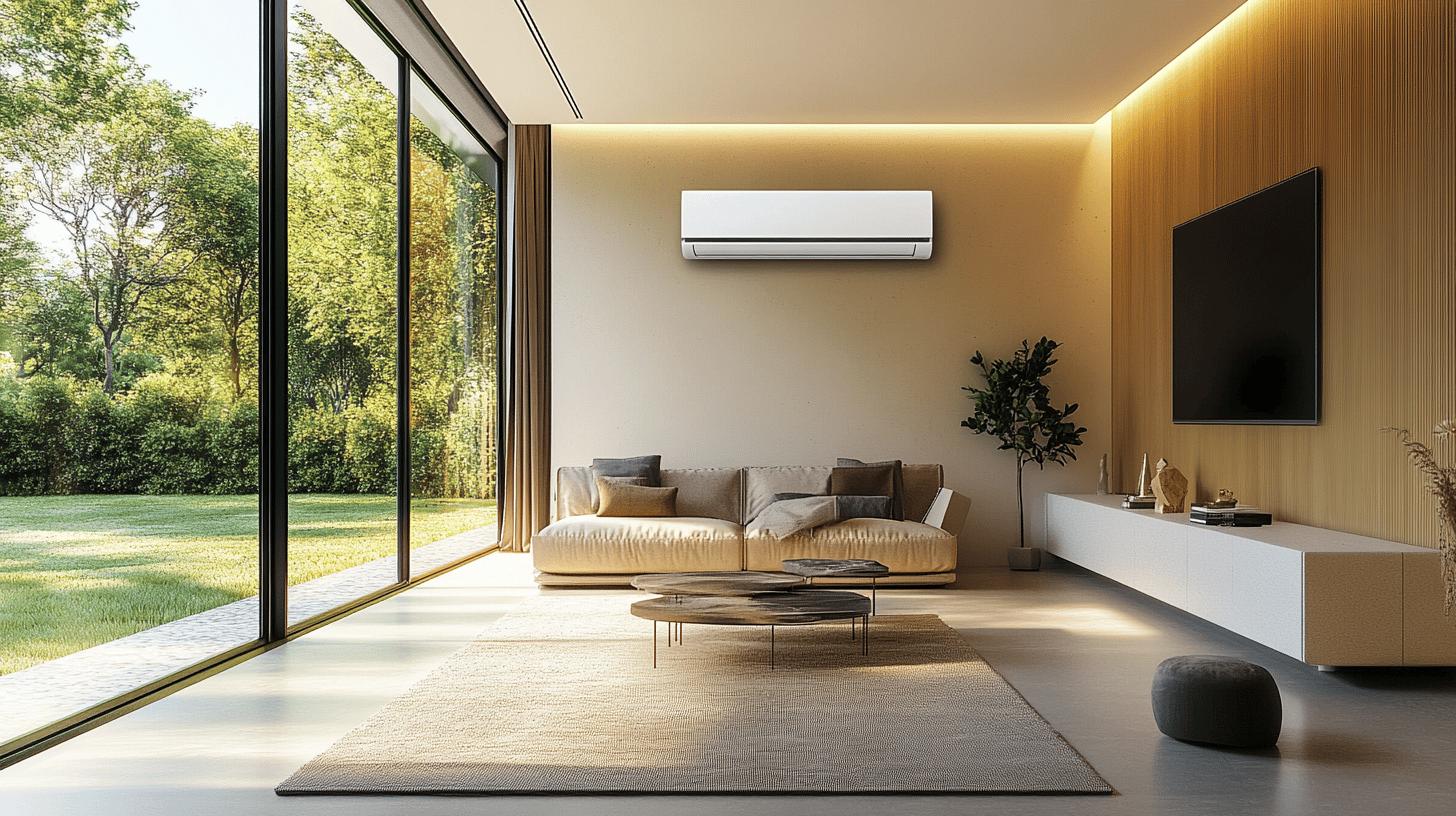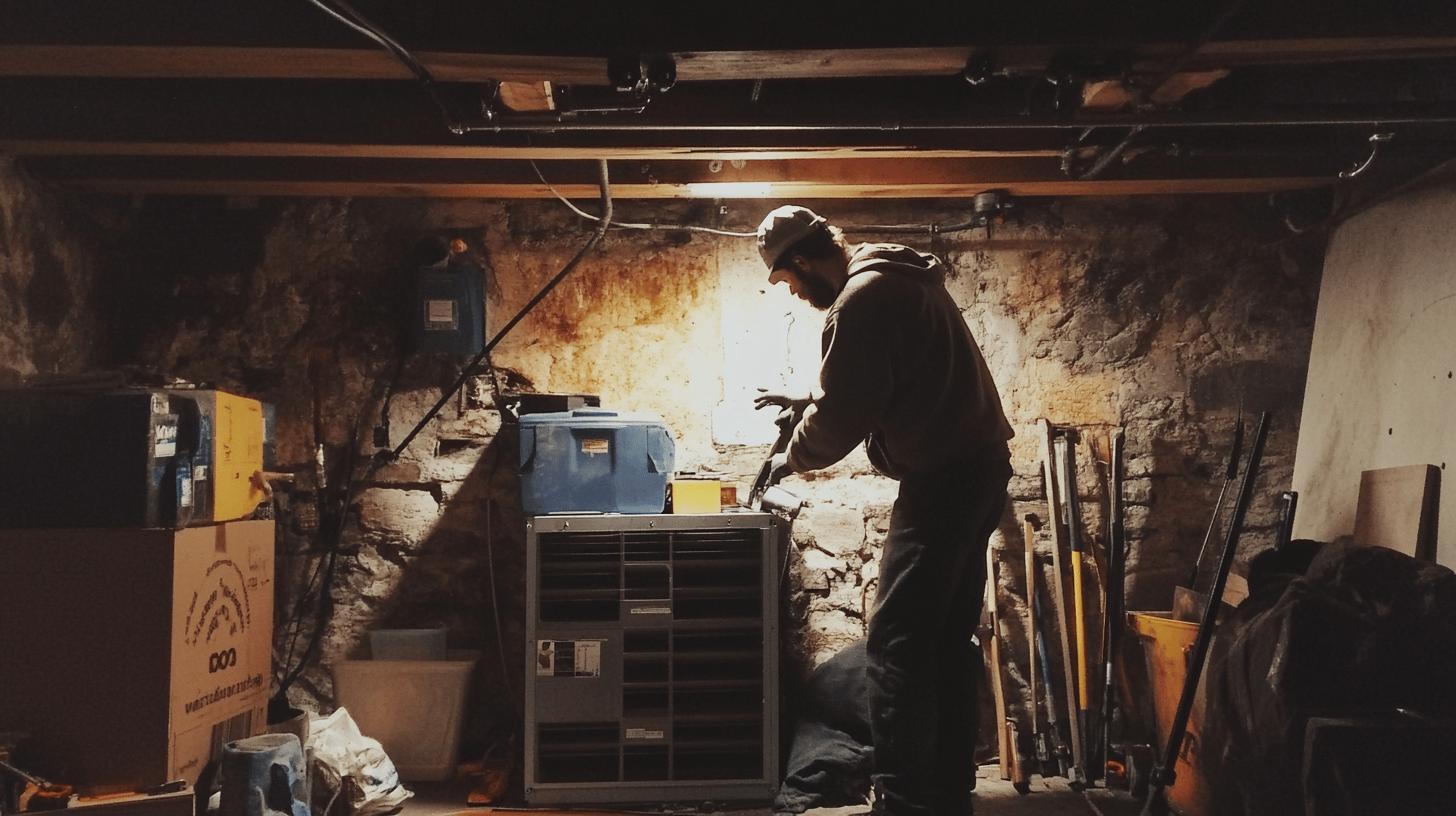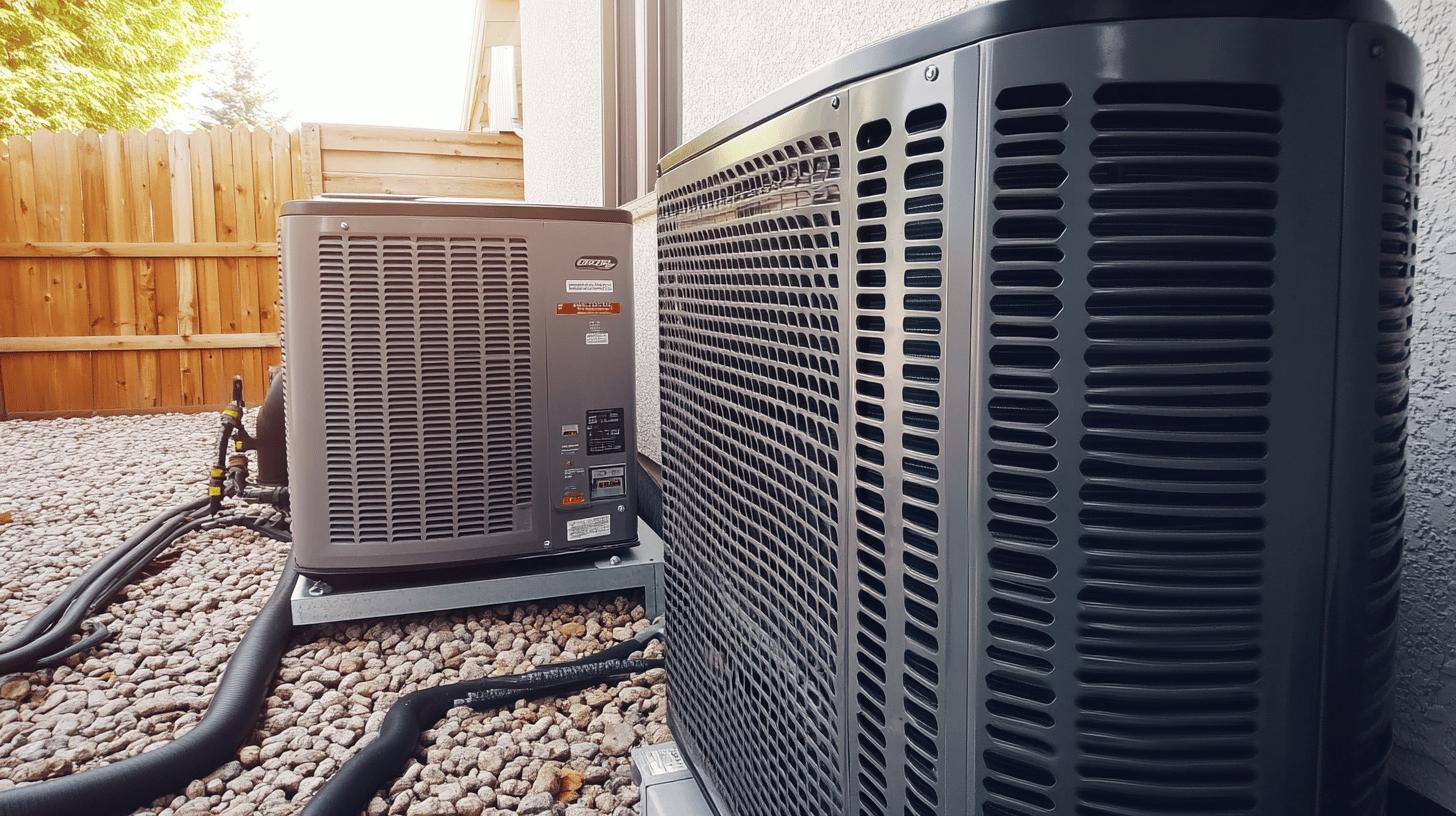HVAC system vs air conditioning. While both aim to keep your home comfortable, they achieve it in distinct ways. Understanding these systems can empower you to make informed decisions for managing your indoor environment efficiently. HVAC systems offer comprehensive solutions, including heating, ventilation, and cooling—perfect for year-round comfort. In contrast, air conditioning focuses solely on cooling, providing targeted climate control. Let’s explore what sets them apart so you can choose the system that best suits your needs and lifestyle.
Understanding HVAC Systems and Their Components
What does HVAC stand for, and why is it vital in homes and offices? HVAC stands for Heating, Ventilation, and Air Conditioning. It’s crucial for managing temperature, humidity, air quality, and airflow in buildings. The system includes furnaces, heat pumps, and ductwork to ensure comfort and improve indoor air quality year-round. By combining heating and cooling, HVAC systems keep indoor environments cozy regardless of outside weather.
How do HVAC components help manage indoor environments? Key parts like furnaces, heat pumps, and ductwork are essential. Furnaces heat spaces by converting energy from natural gas or electricity. This heat then travels through ductwork. Heat pumps can warm or cool by moving heat between indoors and outdoors. Ductwork spreads conditioned air, ensuring even temperature distribution. Together, these components maintain a balanced indoor climate.
- Heating
- Cooling
- Ventilation
- Humidity control
- Air filtration
Air Conditioning Systems: Focus on Cooling

How do air conditioning systems work? These systems absorb heat and moisture indoors and release it outside. The cooling cycle starts when the thermostat signals a need for cooling. The refrigerant absorbs indoor heat as it circulates. It then releases this heat outdoors through condenser coils. Fans move the cooled air back inside, ensuring comfort.
What types of air conditioning systems exist, and what are their uses? There are several types, suited for different needs. Central air systems cool large homes and buildings evenly through ductwork. Split systems have an indoor and outdoor unit, offering energy efficiency, ideal for homes lacking pre-existing ductwork. Ductless systems, or mini-splits, control individual rooms, perfect for add-ons or areas needing separate climate control.
| AC Type | Function |
|---|
| Central Air | Provides whole-home cooling via ductwork |
| Split System | Offers energy-efficient cooling with separate units |
| Ductless System | Allows room-specific control without ductwork |
Comparing HVAC and Air Conditioning Systems
What sets an HVAC system apart from an air conditioning system? An HVAC system provides heating, cooling, and ventilation for complete climate control. Air conditioning systems focus only on cooling by removing heat and moisture. HVAC systems feature components like furnaces, heat pumps, and ductwork for comfort year-round, suitable for homes and businesses.
How do costs compare between HVAC and air conditioning systems? HVAC systems often have higher initial costs due to their complex components. Air conditioning systems generally cost less upfront as they comprise only cooling equipment. Long-term, HVAC systems may save money through better energy efficiency and less need for separate heating solutions. Advanced features like programmable thermostats and zoning controls can further cut operating costs.
What about energy efficiency and space requirements? HVAC systems tend to be more energy-efficient since they manage both heating and cooling. This can mean lower energy bills over time. However, they need more space for installation, especially for ductwork and furnaces. Air conditioning systems, particularly ductless mini-splits, are more compact and need less structural change. When choosing, consider space and energy needs.
- Initial installation costs
- Operating costs
- Energy efficiency
- Space requirements
Maintenance and Longevity: HVAC System vs Air Conditioning

How important is regular maintenance for HVAC and air conditioning systems? Both must ensure great performance and a long life. HVAC systems, with their complex setups and multiple components, need more frequent checks. This includes cleaning air filters, checking ductwork, and making sure thermostats work right. Air conditioning systems need regular cleaning of condenser coils and proper refrigerant levels to remain efficient.
How does proactive maintenance affect longevity? Regular care significantly increases the lifespan of both systems. It allows early issue detection, preventing costly repairs. For HVAC systems, tune-ups improve energy efficiency and cut costs, extending their life. For air conditioning units, routine checks maintain cooling performance, prevent leaks, and keep them running smoothly, ultimately enhancing reliability.
Choosing Between HVAC and Air Conditioning Systems
How to choose between an HVAC system and an air conditioning system? The choice depends on your needs, budget, and climate. If heating and year-round comfort are important, HVAC systems are ideal. They combine heating, ventilation, and air conditioning, which suit areas with varying seasonal temperatures. Although they cost more initially, they offer savings through energy-efficient features and less need for separate heating solutions.
What should you consider when evaluating these systems? Look at budget, climate, and space. If cooling is the main need, especially in mild winter areas, air conditioning might be cheaper and easier to install and maintain. HVAC systems offer more adaptability, benefiting areas with temperature extremes.
- Budget constraints
- Climate conditions
- Space and structural compatibility
Choosing the right system involves weighing these factors to match your comfort needs and budget.
Final Words
Exploring HVAC systems and air conditioning reveals distinct differences; HVAC units manage heating, cooling, and ventilation, while air conditioning focuses solely on cooling. Understanding these differences helps in making informed decisions on energy efficiency and overall cost.
Choosing between the two depends largely on your specific needs, climate, and budget. Regular maintenance is essential for both ensuring longevity and efficiency. Whether an HVAC system or air conditioning best suits your situation, prioritizing proper care and upkeep guarantees optimal performance. Balance cost and comfort to select a solution that aligns with your lifestyle.
FAQ
Is HVAC the same as air conditioning?
HVAC is not the same as air conditioning. HVAC systems provide heating, ventilation, and air conditioning, offering comprehensive climate control. Air conditioning systems focus solely on removing heat and moisture for cooling purposes.
Is HVAC more expensive than AC?
Yes, HVAC systems are generally more expensive than standalone AC systems. This is due to their comprehensive functionality, which includes heating, cooling, and ventilation, resulting in higher initial installation costs and more complex components.
How do I know if I have HVAC or AC?
To determine if you have an HVAC or AC system, check for additional heating and ventilation components. HVAC systems include heating elements like furnaces or heat pumps, while AC systems focus only on cooling.
Why is HVAC better than AC?
HVAC systems are considered better than AC systems for year-round comfort. They provide heating, cooling, and ventilation, leading to improved indoor air quality and energy efficiency, offering more comprehensive climate management.
HVAC system vs air conditioning pros and cons
HVAC systems offer total climate control with heating, cooling, and ventilation, but are costlier and occupy more space. AC systems are cheaper, focusing on cooling, making them suitable for warm climates without heating needs.

